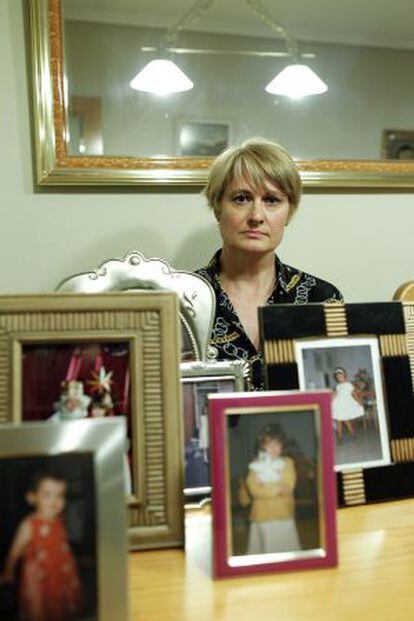UN rules against Spain for not protecting daughter killed by her father
Andrea González died during an unsupervised visit, after her mother reported dozens of incidents

The UN’s Committee on the Elimination of All Forms of Discrimination Against Women (CEDAW), has ruled against Spain for failing to protect a woman whose seven-year-old daughter, Andrea, was murdered by her former husband during a court-approved visit in 2003. The woman, Ángela González, had reported the man to the police on 30 occasions for threatening and physically abusing her. He had refused to accept supervised visits with his daughter. After killing the child he committed suicide.
CEDAW has ruled that the Spanish government should compensate González “in proportion” and that it was negligent: it failed to protect mother and daughter, and then failed to compensate the mother after the killing. This is the first time that the international body has ruled against Spain in a gender-specific violence case. “The ruling is cogent. CEDAW is saying that the Spanish justice system’s failing led directly to the death of Andrea; also that the Spanish state mistreated Ángela by refusing to accept its negligence,” says Viviana Waisman, the head of Women’s Link Worldwide, which brought the case before the UN.
CEDAW ruled that the government should compensate González “in proportion” and that it was negligent
In 1999, after several years of violence, González fled from her husband with her daughter Andrea, who at the time was aged three, but the violence continued. González sought protection for herself and her daughter from the courts for years, petitioning that the visitations of her daughter with her former husband be monitored. Despite making more than 30 complaints to the police, the courts permitted an unsupervised regime of visits.
González first brought a complaint against the Spanish authorities before the courts, which ruled against her. She then contacted Women’s Link Worldwide, who took the case to CEDAW.
“The objective here has been to create a ruling that can serve as a guideline so that other countries apply their laws regarding gender-specific violence. This will serve to provide greater protection for minors, and so that their rights are paramount, because failing to protect minors is something that happens in every country,” says Paloma Soria of Women’s Link.
Despite making more than 30 complaints to the police, the courts permitted an unsupervised regime of visits
The director of the Women’s Institute, Carmen Plaza, said on Monday that “the protection that could have prevented this death was not provided,” adding that nevertheless, “Spain had evolved a great deal” thanks to legislation introduced in 2004 by the former Socialist Party administration to tackle gender-specific violence.
The Spanish authorities now have six months to decide how much to compensate González for the murder of her daughter. At the same time, CEDAW’s ruling requires Spain to provide training to judges and other professionals so as to avoid similar cases in the future.
The authorities have six months to decide how much to compensate González for the murder of her daughter
Spanish courts suspend just three percent of visiting rights by fathers in gender violence cases. “This shows that in reality the old stereotypes continue, and that the mother is still seen as lacking credibility. We have to overcome the idea that a man who abuses his wife or partner is not necessarily a bad father: he is not fit to be a father from the moment he harms the mother of his children. We must also overcome the idea that women use gender violence law to get custody of their children, or for other advantages during divorce proceedings,” says Miguel Lorente, a former government advisor on gender violence.
The Health Ministry has responded to CEDAW’s ruling saying that it is introducing new mechanisms to protect minors in gender violence cases, such as requiring judges to take precautionary measures from the outset. That said, as a spokesman explains, “judges have the final say in these cases; the law can only provide guidelines to help reach the right sentence.”










































